Toxics
How Seventh Generation is Eliminating Toxics Throughout Their Supply Chain
 My guest is chemist Martin Wolf, Director of Product Sustainability and Authenticity for Seventh Generation, a manufacturer and distributor of ecological household and personal care products. We’ll be talking about what Seventh Generation is doing to eliminate toxic chemicals in every phase of manufacture, and how they are helping make the world less toxic by working to improve toxics regulations. Martin brings more than 40 years of experience in industrial and environmental chemistry to his work, including the occurrence of hazardous chemicals in the environment, conducting life cycle studies of industrial processes, and designing more sustainable household cleaning products. At Seventh Generation, Martin has developed frameworks for environmental product design, helped educate his co-workers, customers, and consumers about the environmental impacts of consumer products and the industries that produce them, helped develop standards for voluntary disclosure, and brought change to the cleaning products industry through more sustainable product designs. In 2010, Martin received a 2010 EPA Region 1 Environmental Merit Award for his work. www.debralynndadd.com/debras-list/seventh-generation
My guest is chemist Martin Wolf, Director of Product Sustainability and Authenticity for Seventh Generation, a manufacturer and distributor of ecological household and personal care products. We’ll be talking about what Seventh Generation is doing to eliminate toxic chemicals in every phase of manufacture, and how they are helping make the world less toxic by working to improve toxics regulations. Martin brings more than 40 years of experience in industrial and environmental chemistry to his work, including the occurrence of hazardous chemicals in the environment, conducting life cycle studies of industrial processes, and designing more sustainable household cleaning products. At Seventh Generation, Martin has developed frameworks for environmental product design, helped educate his co-workers, customers, and consumers about the environmental impacts of consumer products and the industries that produce them, helped develop standards for voluntary disclosure, and brought change to the cleaning products industry through more sustainable product designs. In 2010, Martin received a 2010 EPA Region 1 Environmental Merit Award for his work. www.debralynndadd.com/debras-list/seventh-generation
Show #100 – How To Earn Money Selling Toxic-Free Products & Services
 It’s my hundredth show, so I’m going to celebrate with a special topic: how to make money selling toxic-free products and services. We’ll explore all kinds of businesses to get involved in and three specific business models:
It’s my hundredth show, so I’m going to celebrate with a special topic: how to make money selling toxic-free products and services. We’ll explore all kinds of businesses to get involved in and three specific business models:
- affiliate programs (www.pureeffectfilters.com)
- local businesses (www.itsournature.com)
- multi-level marketing (debralynndadd.mytouchstoneessentials.com)
Make it your business to help others live toxic-free. I’ve got three guests who are doing it and making good income. One of my suggestions is an excellent product that is widely needed, and you can get in for zero money down. Tune in and explore the possibilities.
Meet a Toxicologist
Yes, there is a field called “toxicology” and it’s all about determining what’s toxic and what’s not. 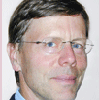 Toxicologist Steven G. Gilbert, PhD, DABT, a regular guest who is helping us understand the toxicity of common chemicals we may be frequently exposed to. Dr. Gilbert is Director and Founder of the Institute of Neurotoxicology and author of A Small Dose of Toxicology- The Health Effects of Common Chemicals.
Toxicologist Steven G. Gilbert, PhD, DABT, a regular guest who is helping us understand the toxicity of common chemicals we may be frequently exposed to. Dr. Gilbert is Director and Founder of the Institute of Neurotoxicology and author of A Small Dose of Toxicology- The Health Effects of Common Chemicals.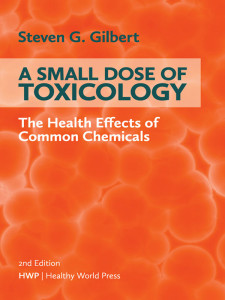 He received his Ph.D. in Toxicology in 1986 from the University of Rochester, Rochester, NY, is a Diplomat of American Board of Toxicology, and an Affiliate Professor in the Department of Environmental and Occupational Health Sciences, University of Washington. His research has focused on neurobehavioral effects of low-level exposure to lead and mercury on the developing nervous system. Dr. Gilbert has an extensive website about toxicology called Toxipedia, which includes a suite of sites that put scientific information in the context of history, society, and culture. www.toxipedia.org
He received his Ph.D. in Toxicology in 1986 from the University of Rochester, Rochester, NY, is a Diplomat of American Board of Toxicology, and an Affiliate Professor in the Department of Environmental and Occupational Health Sciences, University of Washington. His research has focused on neurobehavioral effects of low-level exposure to lead and mercury on the developing nervous system. Dr. Gilbert has an extensive website about toxicology called Toxipedia, which includes a suite of sites that put scientific information in the context of history, society, and culture. www.toxipedia.org
Household Hazardous Waste—What to Do With the Toxics You Want to Trash
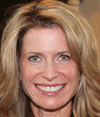 My guest today is Victoria Hodge, President of the North American Hazardous Materials Management Association (NAHMMA), a professional organization dedicated to pollution prevention and reducing the hazardous constituents entering municipal waste streams from households, small businesses and other entities that are not included in other toxics disposal regulations. She is also the Municipal Sales Manager for the Central Region for Otto Environmental Systems, where she works with the field sales team to build municipal business in both products and services. Among other activities in the field of solid waste and recycling Victoria set up a pharmeceutical collection site that received regional, state, and national awards as a result of its success. We’ll be talking aabout which items in your home are considered hazardous waste and how to legally dispose of them. www.nahmma.org
My guest today is Victoria Hodge, President of the North American Hazardous Materials Management Association (NAHMMA), a professional organization dedicated to pollution prevention and reducing the hazardous constituents entering municipal waste streams from households, small businesses and other entities that are not included in other toxics disposal regulations. She is also the Municipal Sales Manager for the Central Region for Otto Environmental Systems, where she works with the field sales team to build municipal business in both products and services. Among other activities in the field of solid waste and recycling Victoria set up a pharmeceutical collection site that received regional, state, and national awards as a result of its success. We’ll be talking aabout which items in your home are considered hazardous waste and how to legally dispose of them. www.nahmma.org
Life Without Plastic
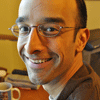 My guest Jay Sinha is co-founder and co-owner (with Chantal Plamondon) of Life Without Plastic, a one-stop shop and information resource for high quality, ethically-sourced, Earth-friendly alternatives to plastic products for everyday life. They founded the business over seven years ago after some tough experiences with chemical sensitivities and following the birth of their son. They sought to avoid the toxicity and awful environmental footprint of plastics but had difficulty finding certain key housewares in a non-plastic form. So they set out to find and source them for others too. Jay has degrees in biochemistry, ecotoxicology and law, and prior to LWP explored jobs ranging from tree planter to environmental consultant to corporate lawyer (most who know him can’t quite believe this one – nor can he) to Parliamentary researcher and policy analyst. This was the most obvious route to becoming a passionate anti-plastic activist and ecopreneur. He loves to walk in the trees – he and Chantal and their son live among the trees in a small dynamic rural community. We’ll be talking about how Jay and his wife manage to live without plastic and some of the great plastic-free products they have on their website. www.debralynndadd.com/debras-list/life-without-plastic
My guest Jay Sinha is co-founder and co-owner (with Chantal Plamondon) of Life Without Plastic, a one-stop shop and information resource for high quality, ethically-sourced, Earth-friendly alternatives to plastic products for everyday life. They founded the business over seven years ago after some tough experiences with chemical sensitivities and following the birth of their son. They sought to avoid the toxicity and awful environmental footprint of plastics but had difficulty finding certain key housewares in a non-plastic form. So they set out to find and source them for others too. Jay has degrees in biochemistry, ecotoxicology and law, and prior to LWP explored jobs ranging from tree planter to environmental consultant to corporate lawyer (most who know him can’t quite believe this one – nor can he) to Parliamentary researcher and policy analyst. This was the most obvious route to becoming a passionate anti-plastic activist and ecopreneur. He loves to walk in the trees – he and Chantal and their son live among the trees in a small dynamic rural community. We’ll be talking about how Jay and his wife manage to live without plastic and some of the great plastic-free products they have on their website. www.debralynndadd.com/debras-list/life-without-plastic
What Can Happen When Toxic Chemicals are Not Regulated and What We Can Do As Citizens to Get the Regulations We Should Have
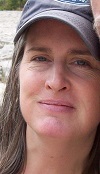 My guest is Peggy Cahill, who became ill after being exposed to isocyanate chemicals from the offgassing of ordinary spray foam insulation. She will tell us how this affected her health as well as her efforts to educate, create awareness and advocate at the state and local level. Peggy’ s professional experience has spanned over 30 years working as an advocate at the state and local level for underserved groups, including children and adults with developmental and physical disabilities, inner city children at risk and adolescents with mental health challenges. She holds a Master of Education degree and is presently working as a program development consultant and freelance writer, creating art and culture programs for those living with Alzheimer’s disease and their care partners.
My guest is Peggy Cahill, who became ill after being exposed to isocyanate chemicals from the offgassing of ordinary spray foam insulation. She will tell us how this affected her health as well as her efforts to educate, create awareness and advocate at the state and local level. Peggy’ s professional experience has spanned over 30 years working as an advocate at the state and local level for underserved groups, including children and adults with developmental and physical disabilities, inner city children at risk and adolescents with mental health challenges. She holds a Master of Education degree and is presently working as a program development consultant and freelance writer, creating art and culture programs for those living with Alzheimer’s disease and their care partners.
How to Kick the Plastic Habit and Improve Your Health and the Environment
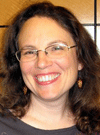 My guest is Beth Terry. After learning about the devastating effects of plastic pollution on the environment and human health, this Oakland, california accountant began an experiment to see if she could live without buying any new plastic. Since then, she has reduced her plastic waste to less than 2% of the national average. That experiment turned into the popular blog
My guest is Beth Terry. After learning about the devastating effects of plastic pollution on the environment and human health, this Oakland, california accountant began an experiment to see if she could live without buying any new plastic. Since then, she has reduced her plastic waste to less than 2% of the national average. That experiment turned into the popular blog 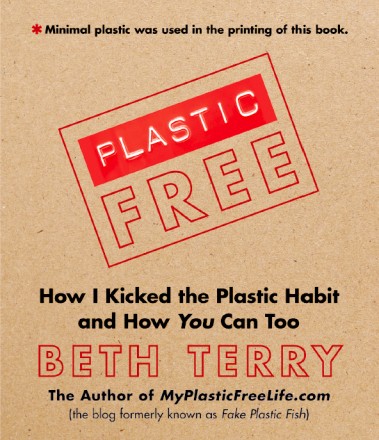 MyPlasticFreeLife.com and new book Plastic-Free: How I Kicked the Plastic Habit and How You Can Too. A founding member of the Plastic Pollution Coalition, Terry gives presentations on plastic-free living and why, despite what some critics assert, our personal actions really do make a difference. Her work and life have been profiled in the award-winning film Bag It, as well as Susan Freinkel’s book, Plastic: A Toxic Love Story and Captain Charles Moore’s Plastic Ocean. – See more at: http://myplasticfreelife.com
MyPlasticFreeLife.com and new book Plastic-Free: How I Kicked the Plastic Habit and How You Can Too. A founding member of the Plastic Pollution Coalition, Terry gives presentations on plastic-free living and why, despite what some critics assert, our personal actions really do make a difference. Her work and life have been profiled in the award-winning film Bag It, as well as Susan Freinkel’s book, Plastic: A Toxic Love Story and Captain Charles Moore’s Plastic Ocean. – See more at: http://myplasticfreelife.com
How Vinyl Affects our Health and The Environment—And What We Can Do
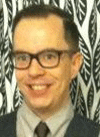 My guest is Mike Schade is the Markets Campaign Coordinator with the Center for Health, Environment & Justice (CHEJ), a national environmental health organization that was founded in 1980 by Love Canal activist Lois Gibbs. Lois became involved in toxics issues after finding out her entire neighborhood had been built on a toxic waste dump. Today CHEJ helps communities form strong local organizations in order to protect neighborhoods from exposure to hazardous wastes. Mike has over a decade of experience working on environmental health and justice issues. For four years, he was the Western New York Director of Citizens’ Environmental Coalition, where he coordinated community, marketplace and policy campaigns, including the Toxic-Free Legacy, Bucket Brigade and Kodak Corporate Accountability campaigns, resulting in substantial victories for environmental and public health. He also worked for the Buffalo Coalition for Economic Justice. At CHEJ, Mike has coordinated the successful national PVC and BPA Marketplace Transformation Campaigns which has convinced some of the world’s biggest companies to phase out PVC, phthalates and BPA. Ethisphere Magazine listed Mike as one of the 100 Most Influential People in Business Ethics for 2007 and the PVC Campaign received the “Path to Victory” Business Ethics Network award. He is the author or co-author of numerous reports including the Wasting of Rural New York State-Factory Farms and Public Health, Volatile Vinyl-the New Shower Curtain’s Chemical Smell, Baby’s Toxic Bottle-BPA Leaching From Popular Baby Bottles, No Silver Lining-An Investigation Into BPA in Canned Foods, and Toxic Toys R Us. He has a BS in Environmental Studies from the State University of NY at Buffalo. http://www.chej.org
My guest is Mike Schade is the Markets Campaign Coordinator with the Center for Health, Environment & Justice (CHEJ), a national environmental health organization that was founded in 1980 by Love Canal activist Lois Gibbs. Lois became involved in toxics issues after finding out her entire neighborhood had been built on a toxic waste dump. Today CHEJ helps communities form strong local organizations in order to protect neighborhoods from exposure to hazardous wastes. Mike has over a decade of experience working on environmental health and justice issues. For four years, he was the Western New York Director of Citizens’ Environmental Coalition, where he coordinated community, marketplace and policy campaigns, including the Toxic-Free Legacy, Bucket Brigade and Kodak Corporate Accountability campaigns, resulting in substantial victories for environmental and public health. He also worked for the Buffalo Coalition for Economic Justice. At CHEJ, Mike has coordinated the successful national PVC and BPA Marketplace Transformation Campaigns which has convinced some of the world’s biggest companies to phase out PVC, phthalates and BPA. Ethisphere Magazine listed Mike as one of the 100 Most Influential People in Business Ethics for 2007 and the PVC Campaign received the “Path to Victory” Business Ethics Network award. He is the author or co-author of numerous reports including the Wasting of Rural New York State-Factory Farms and Public Health, Volatile Vinyl-the New Shower Curtain’s Chemical Smell, Baby’s Toxic Bottle-BPA Leaching From Popular Baby Bottles, No Silver Lining-An Investigation Into BPA in Canned Foods, and Toxic Toys R Us. He has a BS in Environmental Studies from the State University of NY at Buffalo. http://www.chej.org
Finding the Hidden Toxics in Consumer Products
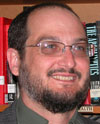 My guest is Jeff Gearhart, Research Director for HealthyStuff.org, a project of the Ecology Center that tests brand-name consumer products for the presence of a list of chemicals of concern. They then rate products as being of high, medium or low concern. Jeff has worked for over 20 years on a wide range of environmental issues including air quality, pollution prevention, life cycle assessment, consumer product testing, and green chemistry. During his sixteen years with the Ecology Center he has spearheaded numerous chemicals policy market campaigns, co-authored multiple peer-reviewed articles on toxics in consumer products, pioneered citizen science in the use of x-ray fluorescence technology for toxics testing in products, and developed the now internationally recognized HealthyStuff.org product chemistry disclosure project and its extensive website of robust advocacy resources and the product testing results of more than 100,000 products. We’ll discuss the project, what they do, their recent report on toxic chemicals in garden products, and specifically how their research can guide us when choosing gardening gloves and garden hoses. www.healthystuff.org
My guest is Jeff Gearhart, Research Director for HealthyStuff.org, a project of the Ecology Center that tests brand-name consumer products for the presence of a list of chemicals of concern. They then rate products as being of high, medium or low concern. Jeff has worked for over 20 years on a wide range of environmental issues including air quality, pollution prevention, life cycle assessment, consumer product testing, and green chemistry. During his sixteen years with the Ecology Center he has spearheaded numerous chemicals policy market campaigns, co-authored multiple peer-reviewed articles on toxics in consumer products, pioneered citizen science in the use of x-ray fluorescence technology for toxics testing in products, and developed the now internationally recognized HealthyStuff.org product chemistry disclosure project and its extensive website of robust advocacy resources and the product testing results of more than 100,000 products. We’ll discuss the project, what they do, their recent report on toxic chemicals in garden products, and specifically how their research can guide us when choosing gardening gloves and garden hoses. www.healthystuff.org
Finding Your Voice and Speaking Up About Toxics
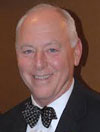 Rick Furbush is the Region 8 Advisor for Toastmasters International, which includes all of the Southeast USA and the Carribean. He has acheived the highest honor Toastmasters bestows, the Distinguished Toastmasters Award. I have been a member of Toastmasters under his leadership since 2009. Since his motto has been “Find Your Voice – Make a Difference,” I invited him to come talk with us about how everyone can make a difference in the world to reduce toxic expsoures by improving their speaking and leadership skills. Toastmasters covers all communication skills, from interpersonal conversations to media training..we’ll give lots of examples of how you can communicate in various ways to make a difference about eliminating toxics. www.toastmasters.org
Rick Furbush is the Region 8 Advisor for Toastmasters International, which includes all of the Southeast USA and the Carribean. He has acheived the highest honor Toastmasters bestows, the Distinguished Toastmasters Award. I have been a member of Toastmasters under his leadership since 2009. Since his motto has been “Find Your Voice – Make a Difference,” I invited him to come talk with us about how everyone can make a difference in the world to reduce toxic expsoures by improving their speaking and leadership skills. Toastmasters covers all communication skills, from interpersonal conversations to media training..we’ll give lots of examples of how you can communicate in various ways to make a difference about eliminating toxics. www.toastmasters.org


